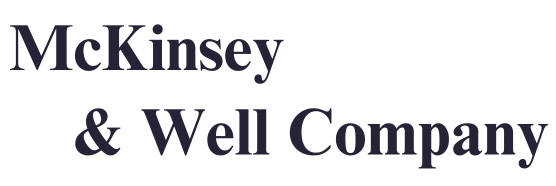Consumer Goods & Retailing
Middle East and Africa Eco-Friendly Packaging Market, By Type (Recycled Content Packaging, Reusable Packaging, Degradable Packaging); By Material Type (Paper & Paper Board, Plastic, Metal, Glass, Starch-based Materials); By Product Type (Bags, Pouches & S
Middle East and Africa Eco-Friendly Packaging Market, By Type (Recycled Content Packaging, Reusable Packaging, Degradable Packaging); By Material Type (Paper & Paper Board, Plastic, Metal, Glass, Starch-based Materials); By Product Type (Bags, Pouches & S
Couldn't load pickup availability
Middle East and Africa Eco-Friendly Packaging Market, By Type (Recycled Content Packaging, Reusable Packaging, Degradable Packaging); By Material Type (Paper & Paper Board, Plastic, Metal, Glass, Starch-based Materials); By Product Type (Bags, Pouches & Sachets, Boxes, Containers, Films, Trays, Tubes, Bottles & Jars, Cans); By Application (Food, Beverages, Pharmaceutical, Personal Care, Home Care); By Country (Saudi Arabia, UAE, Qatar, Kuwait, South Africa, Nigeria, Algeria, Rest of MEA), Competitive Landscape & Forecast, 2019–2029
Middle East and Africa Eco-Friendly Packaging Market Size Grows at Steady CAGR of 4.2% to Reach USD 10.64 Billion by 2029
Middle East and Africa eco-friendly packaging market is flourishing due to growing environmental awareness, stringent regulations promoting sustainable practices, consumer demand for eco-conscious products, and a growing emphasis on reducing plastic waste in the region.
BlueWeave Consulting, a leading strategic consulting and market research firm, in its recent study, estimated the Middle East and Africa eco-friendly packaging market size at USD 8.32 billion in 2022. During the forecast period between 2023 and 2029, BlueWeave expects the Middle East and Africa eco-friendly packaging market size to grow at a CAGR of 4.19% reaching a value of USD 10.64 billion by 2029. The Middle East and Africa eco-friendly packaging market is primarily driven by increasing environmental consciousness among consumers and stringent government regulations promoting sustainable practices. Growing concerns about plastic pollution and a desire to reduce carbon footprints have fueled demand for eco-friendly packaging materials such as biodegradable plastics, recyclable materials, and sustainable alternatives. Also, a rise in e-commerce and the food and beverage industry's need for sustainable packaging solutions has further boosted market growth. The region's expanding middle-class population and changing consumer preferences towards eco-conscious products are also significant factors propelling the eco-friendly packaging market in the Middle East and Africa.
Middle East and Africa Eco-Friendly Packaging Market – Overview
Eco-friendly packaging refers to sustainable, environmentally responsible materials and practices used in product packaging. It aims to reduce the environmental impact of packaging throughout its lifecycle, from production to disposal. This approach typically involves using recyclable, biodegradable, or compostable materials, minimizing packaging waste, and employing energy-efficient manufacturing processes. Eco-friendly packaging helps conserve natural resources, reduce greenhouse gas emissions, and combat pollution, making it a crucial component of sustainability efforts in various industries. Consumers increasingly prioritize eco-friendly packaging, driving businesses to adopt more environmentally conscious practices to meet both customer demands and global sustainability goals.
Prolonging Hamas-Israel War Could Affect Middle East and Africa Eco-Friendly Packaging Market
Effects of the intensifying Israel-Hamas war and escalating geopolitical tensions on the Middle East and Africa eco-friendly packaging market are primarily driven by uncertainties and instability in the Middle East region. The raging conflict creates an atmosphere of unpredictability, impacting consumer behaviors and market dynamics. Uncertainty surrounding the situation can lead to cautious spending and investment decisions, affecting the eco-friendly packaging market's performance. Additionally, the instability in the Middle East region can disrupt supply chains, potentially leading to delays in product availability and increased costs. The extent of these effects depends on the conflict's duration and its impact on the overall stability in the region.
Impact of COVID-19 on Middle East and Africa Eco-Friendly Packaging Market
The COVID-19 pandemic significantly impacted the Middle East and Africa eco-friendly packaging market. On the one hand, there was an increased awareness of hygiene and sustainability, leading to a surge in demand for eco-friendly packaging materials such as biodegradable and recyclable options. However, the economic challenges posed by the pandemic resulted in supply chain disruptions and reduced consumer spending, affecting the growth of the market. Despite these challenges, the long-term outlook for the eco-friendly packaging market in the Middle East and Africa remains positive, as sustainability continues to be a key focus area for consumers and businesses in the region.
Middle East and Africa Eco-Friendly Packaging Market – By Material Type
By material type, Middle East and Africa eco-friendly packaging market is divided into Paper & Paper Board, Plastic, Metal, Glass, and Starch-based Materials segments. The largest and most significant is the recycled content packaging segment. Recycled content packaging involves the use of materials that have been previously used and then processed to create new packaging materials. This approach not only reduces the consumption of virgin resources but also helps in diverting waste from landfills, contributing to environmental sustainability. It resonates with the growing global awareness of the importance of recycling and minimizing waste generation.
Competitive Landscape
Middle East and Africa eco-friendly packaging market is fiercely competitive. Major companies in the market include Tetra Pak, Amcor plc, Sealed Air Corporation, Nampak, Mondi Group, Huhtamaki Group, DS Smith, Constantia Flexibles, Falcon Pack, Crown Holdings, Inc., and Bemis Company, Inc. These companies use various strategies, including increasing investments in their R&D activities, mergers, and acquisitions, joint ventures, collaborations, licensing agreements, and new product and service releases to further strengthen their position in Middle East and Africa eco-friendly packaging market.
The in-depth analysis of the report provides information about growth potential, upcoming trends, and statistics of the Middle East and Africa Eco-Friendly Packaging Market. It also highlights the factors driving forecasts of total market size. The report promises to provide recent technology trends in the Middle East and Africa Eco-Friendly Packaging Market and industry insights to help decision-makers make sound strategic decisions. Furthermore, the report also analyzes the growth drivers, challenges, and competitive dynamics of the market.


